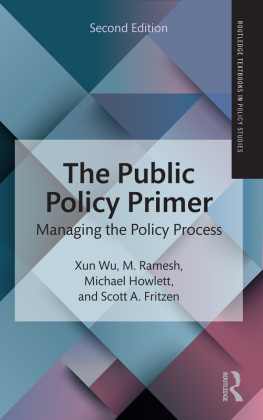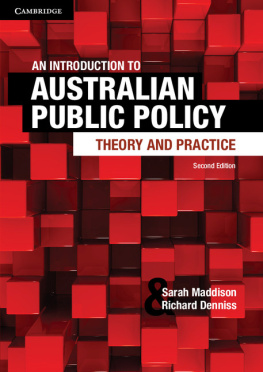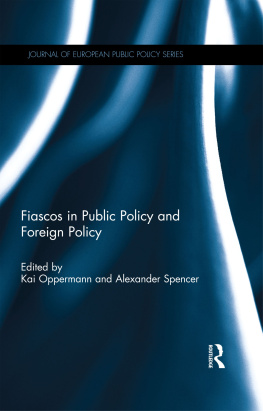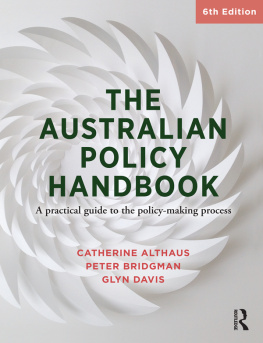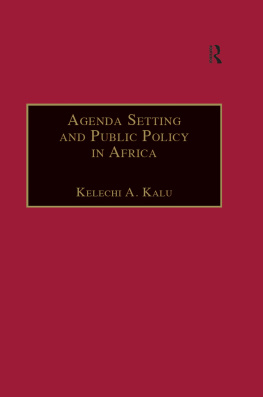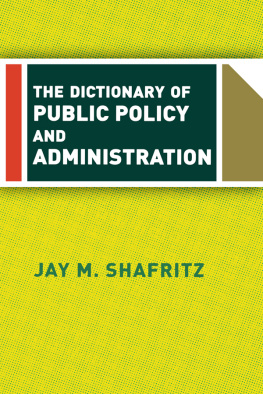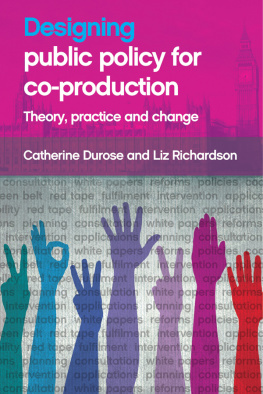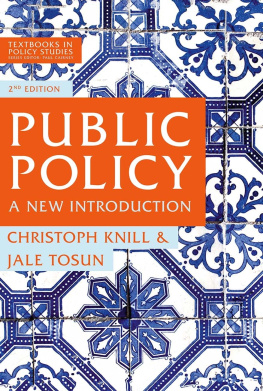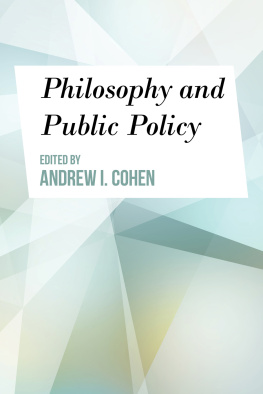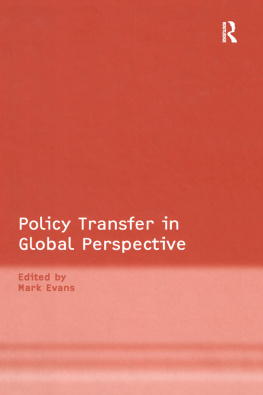The Public Policy Primer
Fully revised for a second edition, this essential guide provides a concise and accessible overview of the public policy process: agenda-setting, policy formulation, decision-making, implementation, and evaluation.
The book provides an introduction to the key policy functions, the challen -ges they entail, and how the challenges may be addressed by policy actors. Written from a comparative perspective, the authors include examples from a diverse range of countries at different stages of develop ment, highlighting key principles and practices through which policy actors can effectively manage their policy processes and outcomes.
Key features of the second edition:
- fully updated and revised content throughout;
- expanded references and further reading;
- more guidance towards understanding the key concepts in public policy.
This important tool offers students of public policy and policy practition ers guidance on how to make, implement, and evaluate public policies in ways that improve citizens lives.
Xun Wu is Professor in the Division of Public Policy and the Division of Social Science at the Hong Kong University of Science and Technology.
M. Ramesh is UNESCO Chair of Social Policy Design in Asia at the Lee Kuan Yew School of Public Policy at the National University of Singapore.
Michael Howlett is Burnaby Mountain Professor in the Department of Political Science at the Simon Fraser University, Canada, and Yong Pung How Chair Professor at the Lee Kuan Yew School of Public Policy at the National University of Singapore.
Scott A. Fritzen is Associate Professor at the Daniel J. Evans School of Public Policy and Governance at the University of Washington.
Routledge Textbooks in Policy Studies
This series provides high-quality textbooks and teaching materials for upper-level courses on all aspects of public policy as well as policy analysis, design, practice and evaluation. Each text is authored or edited by a leading scholar in the field and aims both to survey established areas and present the latest thinking on emerging topics.
The Public Policy Primer
Managing the Policy Process
Xun Wu, M Ramesh, Michael Howlett and Scott Fritzen
Designing Public Policies
Principles and Instruments
Michael Howlett
Making Policy Work
Peter John
Analyzing Public Policy, 2nd Edition
Peter John
Public Policy and Private Interest
Ideas, Self-Interest and Ethics in Public Policy
J.A. Chandler
The Public Policy Primer
Managing the Policy Process, 2nd Edition
Xun Wu, M. Ramesh, Michael Howlett and Scott A. Fritzen
Second edition published 2018
by Routledge
2 Park Square, Milton Park, Abingdon, Oxon OX14 4RN
and by Routledge
711 Third Avenue, New York, NY 10017
Routledge is an imprint of the Taylor & Francis Group, an informa business
2018 Xun Wu, M. Ramesh, Michael Howlett, and Scott A. Fritzen
The right of Xun Wu, M. Ramesh, Michael Howlett, and Scott A. Fritzen to be identified as authors of this work has been asserted by them in accordance with sections 77 and 78 of the Copyright, Designs and Patents Act 1988.
All rights reserved. No part of this book may be reprinted or reproduced or utilised in any form or by any electronic, mechanical, or other means, now known or hereafter invented, including photocopying and recording, or in any information storage or retrieval system, without permission in writing from the publishers.
Trademark notice: Product or corporate names may be trademarks or registered trademarks, and are used only for identification and explanation without intent to infringe.
First edition published by Routledge 2010
British Library Cataloguing-in-Publication Data
A catalogue record for this book is available from the British Library
Library of Congress Cataloging-in-Publication Data
A catalog record for this book has been requested
ISBN: 978-1-138-65153-1 (hbk)
ISBN: 978-1-138-65154-8 (pbk)
ISBN: 978-1-315-62475-4 (ebk)
Typeset in Times New Roman
by Florence Production Ltd, Stoodleigh, Devon, UK
We are grateful to many colleagues including Andrea Migone of the Institute of Public Administration of Canada and Ben Cashore of Yale University for detailed comments received on the first edition, as well as the very helpful insights provided by reviewers commissioned by Routledge Press. Many at the Lee Kuan Yew School of Public Policy at the National University of Singapore also supported this project, especially Kishore Mahbubani, Kanti Bajpai, Eduardo Araral, and Kenneth Tan. We have used portions of the manuscript in Masters courses and executive education sessions at the school, and the response we received from students and trainees also helped us tremendously in improving the text. Our sincere thanks to all of you.
1
Introduction
With recurring environmental and financial crises, terrorism, continuing widespread poverty and inequality, and deepening concerns about climate change, the need for sound public policies has never been greater. Contemporary economic, social, and technological changes make the need for good policy and governance yet more vital. Addressing problems related to these issues and others necessitate governments to rise to the challenge of devising more effective policies.
These kinds of problems are too vast for communities and corporations, much less individuals, to resolve on their own: only governments have the potential to address such collective issues, especially when they work constructively with other governments and nongovernmental actors to do so. Organizing and managing the policy processes involved at national, sub-national and international levels is a critical task and an important harbinger of successful policy-making and effective policy outcomes.
Understanding policy processes and policy-making activities and the behavior of key actors is thus essential for policy actors aspiring to influence policy development in a positive direction. This book seeks to provide key policy actors in government and in nongovernmental positions with lessons found in the many works in the policy sciences that deal with these issues and questions.
Empirical research, for example, shows that government policy and governance institutions are the strongest determinants of development, both economic and social (Lin and Chang 2009; Haggard and Kaufman 2016; Rodrik, Subramanian and Trebbi 2004). Conversely, weak institutions and the bad policies they often produce are commonly the largest determinants of development failures. Thus, in the mid-1950s, income, education, and health indicators for Myanmar (formerly known as Burma) and South Korea, for example, were broadly similarly, but within only a decade all these indicators were much higher in South Korea, largely due to the policy institutions and practices found in that country which allowed effective policies to be developed, enacted, and implemented. Success bred further success in Korea while interlocking policy, governance, and development failures in Myanmar deepened over several decades (Holliday 2012). As these two countries show, the rewards for enacting sound policies through effective management of the policy process are as high as the costs of getting them wrong; and the long-term performance differentials generated by policy choices made today can be staggering.

